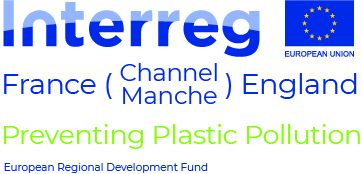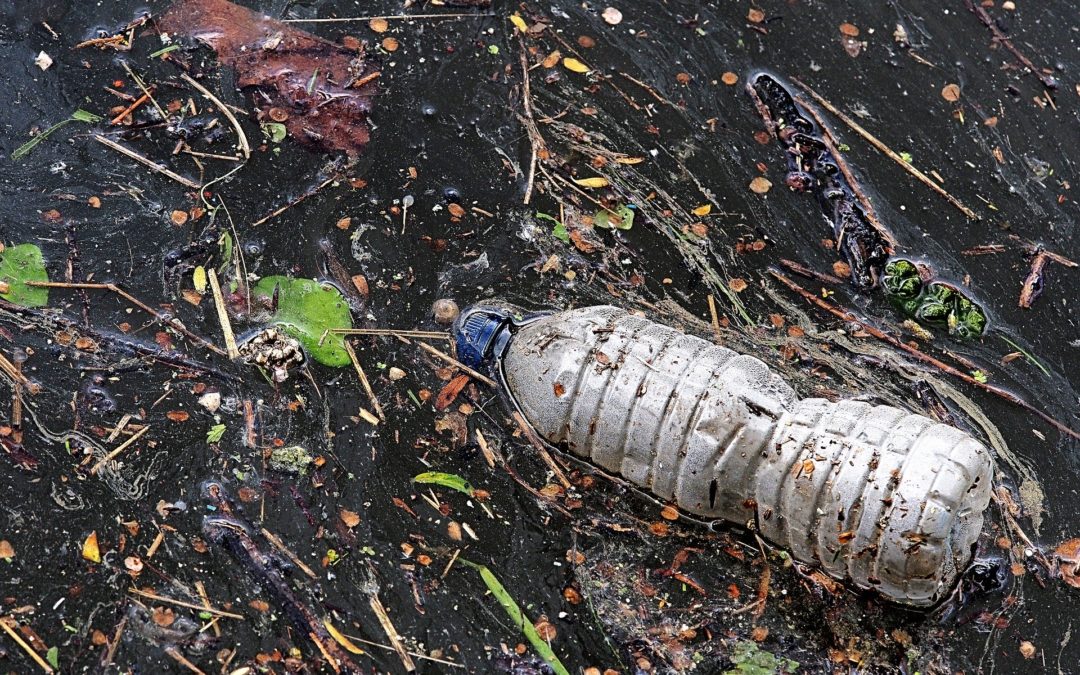Organisations across the South West are joining forces as part of an international project to remove and prevent plastic pollution in the English Channel – and we are one of them.
Preventing Plastic Pollution (PPP) will develop a model to gather data on the amount and likely sources of plastic pollution at seven pilot sites, including the River Tamar catchment.
Project lead Andy Rogers from Westcountry Rivers Trust said: “We have an excellent Citizen Scientist community who already help monitor water quality issues in our river catchments.
“Through PPP, we will be including plastic contamination within our analysis to start gathering data on the origins and accumulation of plastic in the Tamar catchment, which will inform where we need to carry out interventions.
“This could include working with farmers and businesses upstream to stop plastics getting into the rivers in the first place.
“We also need to tackle the huge amounts of plastic pollution clogging up the rivers now and will be collaborating with people and local groups who love their rivers and streams to get involved in clean-ups.
“There will be many opportunities for people to become involved, whether as one of our Citizen Scientists (where we provide all training and equipment), or by signing up to any clean-ups taking place.
“All help is welcome and makes a big difference so please get in touch to find out more.”
The €14m project has been approved by the Interreg France (Channel) England Programme, which has committed €9.9m in funding through the European Regional Development Fund.
It is made up of 18 partners across the UK and France, and they will work together to generate greater understanding of the origins of plastic pollution in the marine environment in order to effectively target its sources.
The Plymouth area is already renowned for its pioneering and world-leading research and action on plastics, and the other local partners include the University of Plymouth, Plymouth City Council and the Environment Agency.
By working together, an assessment of plastic pollution entering the River Tamar catchment will be made, which will then be quantified based on standardised approaches that will then be evaluated.
This conceptual model will also be applied to the six other pilot sites and used to identify pollution hotspots and where interventions would be most effective.
The PPP partners – led by Queen Mary University of London – will also engage with communities, agriculture, fishing and maritime industries to help reduce their plastic footprints and steer them to more sustainable behaviours.
Professor Richard Thompson OBE, Head of the International Marine Litter Research Unit at the University of Plymouth, said:
“There are many sources of plastic pollution to the marine environment and the world’s freshwater systems would feature high on that list.
“Appreciating the relative importance of these sources is key if we are to fully address this issue and this is an exciting project when it comes to developing a greater understanding of that.
“I am delighted to be working with our regional partners on this initiative, connecting work in the UK with colleagues across the channel in France.
“The challenge of plastic pollution is one we can solve but only by working together, and I believe the research and collaborative opportunities offered by this project can help reduce plastic pollution.”
Councillor Sue Dann, Cabinet member for Street Scene and the Environment at Plymouth City Council, said:
“As custodians of Britain’s Ocean City, it is entirely right and proper for the Council to be at the forefront of this important project.
“As part of our work to open the UK’s first National Marine Park we must ensure that we are winning the fight against plastic pollution in our waters.
“I’m really looking forward to working with partners both in the UK and in France to achieve our goals.”
Emma Howard-Boyd, Chair of the Environment Agency, added:
“Plastic pollution is a growing threat to our natural environment.
“Reducing the amount entering the river network will help protect wildlife for future generations.
“Our teams will work across the south coast, with the project partners, to increase the Environment Agency’s understanding of plastics in the environment and test innovative approaches to help businesses, communities and young people reduce their use of avoidable plastics.”
Andy concluded: “We are excited to be a partner in this innovative project to understand and start preventing plastic pollution in our rivers and seas.
“For the past 25 years, the trust’s focus has been on delivering real improvements to the quality of our rivers and their catchments for wildlife and people.
“During that time, we have seen how poor management of plastic has become a real issue in our rivers, and we have become increasingly concerned about how it is impacting the many animals, both in and out of the water.
“Working closely with our partners, we plan to make real progress on understanding the origins of plastic pollution in the Tamar catchment and help develop ways to effectively capture and stop plastic entering our rivers.”
To find out how you can get involved, visit our Preventing Plastic Pollution page, call 01579 372140 or visit our Citizen Science page.
For information on the wider project, visit: preventingplasticpollution.com


